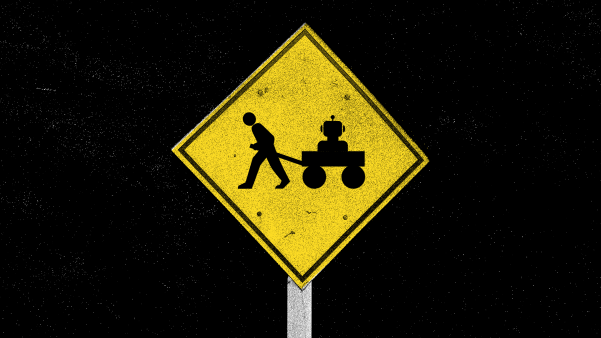Every schoolboy knows how Galileo braved the Catholic Inquisition to put Copernicus on the map and the sun in the solar system. What they don’t always know is that scientists are capable of being just as prejudiced as are religionists.
A recent resolution of the National Academy of Sciences is a case in point. The academy strongly opposes the inclusion of the religious concept of the origin of life in California science textbooks—a course that has been urged on the State Board of Education, which was scheduled to … announce its verdict next month.
Many observers on the Western intellectual scene have been saying that we are coming out of the period of aggressive scientism that we have been in since the last century; but, if this resolution is any indication, scientism has just launched a counterattack.
It does no good to scream “monkey trial!” this late in the century. In the 1920s, bigoted religion was so strong that it could prevent science from teaching evolution. Now the shoe is on the other foot: bigoted science is trying to claim the field of origins for itself and to eliminate all other competitors.
The academy warns us that religion and science are “separate and mutually exclusive realms of human thought whose presentation in the same context leads to misunderstanding of both scientific theory and religious beliefs.” I’m a great believer in the interdisciplinary approach, and I frankly wonder if any two fields of thought are “mutually exclusive.”
But, no matter—anyone with a smattering of education knows that religion and science are different in many respects. Yet to assert so apodictically that “there is no question on which both science and religion can have something to say” is to say something that no one can really prove.
It is entirely possible that science and religion can work on the same question—in this case, the question of ultimate origins—and both contribute something valuable to the resolution of the problem. There is no sign on the door of religion reading, “No microscopes allowed.” Why should there be a sign on the door of science reading, “No faith allowed”?
Yet the National Academy of Sciences warns us that we must not introduce the concept of “the supernatural” into scientific studies because the concept is not subject to validation by scientists. This may be just its way of saying that the supernatural is not the natural, which you can see by the definition of the term.
If the academy is trying to tell us that science can’t deal with the nonempirical, or spiritual, that’s fine. But if it is suggesting that rational men, in their comprehensive efforts to understand the total universe, can’t postulate nonempirical explanations for things in their experience that can’t be accounted for on empirical grounds, then the academy is being unscientific itself.
It is true that science, as presently understood, can’t handle the concept of the supernatural. It is structured to study the empirical and repeatable, not the spiritual and the unique. But this proves nothing about the possible need to introduce the supernatural into a discussion of a special question, such as the problem of origins.
To study this problem might require, in addition to science, a discipline that handles the spiritual and unique. If science goes into origins, it ought to admit that the problem might transcend empirical categories and that such other disciplines as religion, theology, and philosophy could have something to say on the subject.
This is precisely what Dr. John Ford has been saying. He is a San Diego physician who, it so happens, is also vice-president of the State Board of Education. Ford has been joined by many religionists in his belief that it would be singularly unscientific for a scientist to affirm that “I can’t allow you to use other disciplines in handling this question of origins.”
I should think that a good educational system would allow many types of evidence and experiences to come into play as it deals with a question as complex as the problem of origins. To say that you can’t find God in a test tube or the soul under a microscope simply proves that you might be looking in the wrong place or with the wrong instrument. You can’t find fish in the desert or scorpions in the sea; you can’t pick up angstrom units on a Geiger counter or X-rays with a speedometer.
When we come to the real issue—the theory of evolution—anyone who meditates long on the problem will see clearly that this theory can’t establish itself beyond the possibility of replacement.
I personally feel that there is some cogent evidence for a simple theory of evolution—that is, for a basic hypothesis of change, progress, complexification of organic life on this planet. (There are also some knotty problems in the theory.) Exactly how this growth came about, whether by natural selection or by some other mechanism, is still hotly debated among scientists.
This simple theory of chance can be interpreted in a number of ways. For example: you can fit it rather easily into a world view of theism, and thus it would be illogical to rule out God just because you had evidence for a simple theory of growth.
A new theory could come along any day now and, using the same evidence, offer an intriguing possibility for rearrangement of the data or putting the same basic data into a new configuration—a simpler pattern that would make the old theory seem inadequate. This happens often in scientific thinking.
What I’m saying is that theories of origin always have a striking lack of finality about them. Plato called all of them “likely tales” (though he didn’t shrink from expounding his own tale in the Timaeus). Even those theories, like evolution, which have a certain power to explain the data, can’t establish themselves beyond doubt, because of the obvious problem of getting to the original facts. We would need to go back (in a time machine perhaps?) and directly observe the process of evolution going on before we could get dogmatic about the theory.
All theories of origin suffer from this same difficulty: they always keep us at a distance from what we need to see to be absolutely sure. This problem of distance makes it impossible to really experiment on the theory of evolution. We can only say that the hypothesis has some explanatory value for the facts that we do have, such as the fossil record and the structural similarity of man and animal.
Consequently, when Professor Melvin Calvin of UC Berkeley, speaking for the National Academy of Sciences, complained that the creation theory wasn’t subject to tests, he should have pointed out, in all fairness, that evolution has the same problem.
If science can’t establish one theory authoritatively, this means that other disciplines have the right to participate in the investigation of the question of origins. To prohibit this, as the academy wishes, could make science seem to assert, “Our discipline has already settled this question. We need no further discussion of it.”
Is this what the academy really means? Is there now no alternative to evolution?
Over 2,000 scientists now make up a body dedicated to the religious explanation of origins—the Creation Research Society, formed in 1968. When this many American scientists are committed to the creation view, I think we can safely say that creation is still a “live option” in the intellectual community, and it ought to be presented as such in any textbook that treats the problem of origins objectively.
If the National Academy of Sciences feels that the introduction of the creation alternatives in science textbooks would “affect the study of science for a generation,” I can only ask this question in response: “What will be the long-term effect of exposing students to only one hypothesis of origins, when the question of origins is still an open question?”
Or is it still an open question?—ARLIE J. HOOVER, professor of history and philosophy at the Malibu, California, campus of Pepperdine University. Reprinted from the Los Angeles Times, November 10, 1972.










